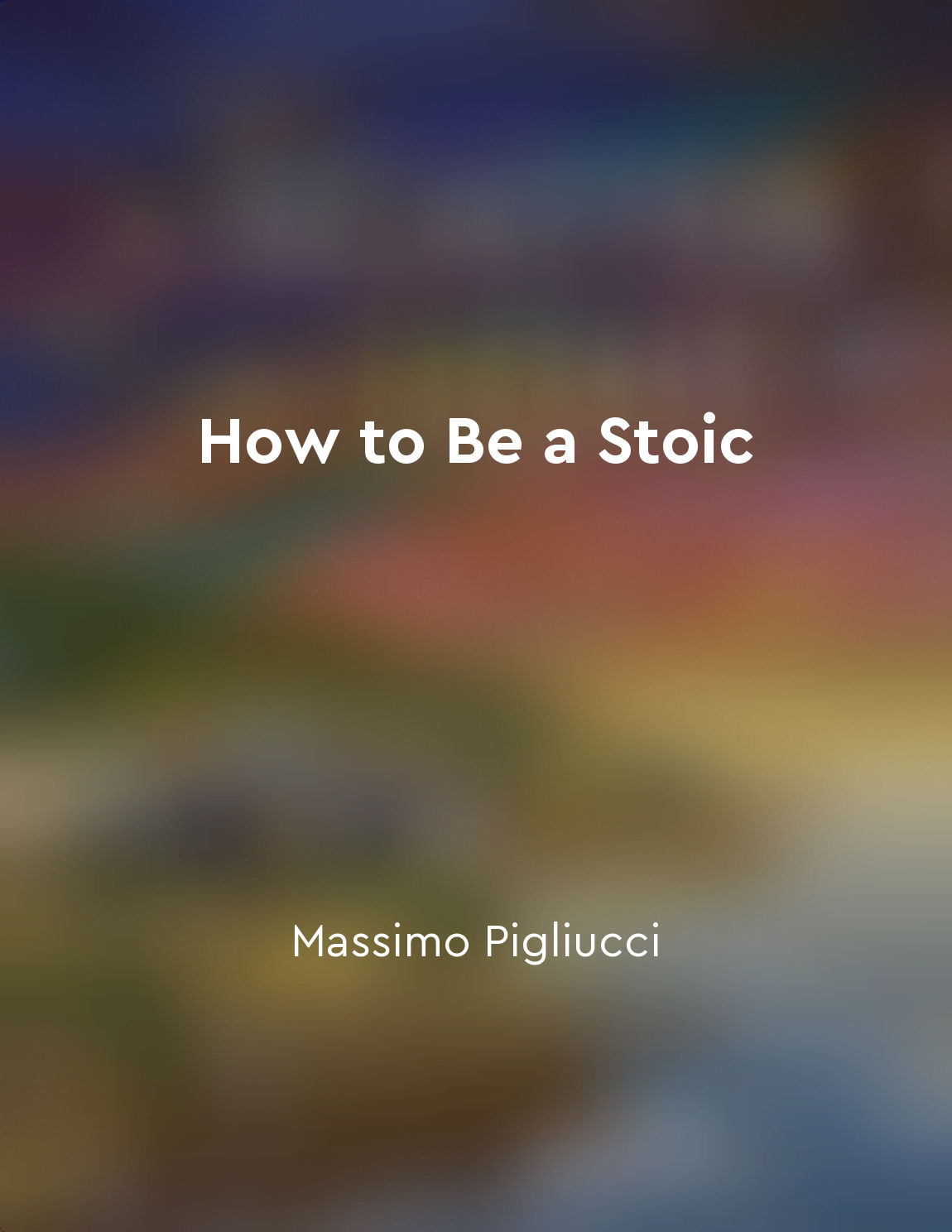Accept what you cannot control from "summary" of How to Be a Stoic by Massimo Pigliucci
The Stoics were adamant about the fact that some things are simply not up to us. There is very little we can do to change the past, for instance, or to control the actions of others. All we can do is focus on our own judgments and actions. This is why they emphasized the importance of distinguishing between those things that are within our power and those that are not. By focusing on what is within our control, we can avoid unnecessary stress and frustration. We can learn to let go of the things that are beyond our reach. This doesn't mean that we should resign ourselves to inaction. On the contrary, the Stoics believed that we should do our best to influence the world around us. But once we have done all that we can, we must be willing to accept whatever outcome comes our way. In this way, the Stoic practice of accepting what we cannot control is not a form of passivity. Rather, it is a form of empowerment. By acknowledging our limitations and focusing on what is within our power, we can become more resilient and better equipped to deal with whatever life throws our way.- The Stoics believed that by accepting what we cannot control, we can achieve a greater sense of inner peace and tranquility. We can learn to let go of our attachment to external things and focus instead on cultivating our own virtue and wisdom. This, they believed, is the key to living a good and fulfilling life.
Similar Posts
Stoicism teaches the importance of living in accordance with one's values
The Stoics believed that in order to live a good life, one must live in accordance with one's values. This means not only ident...
Stoics embrace change and adaptability in life
Stoicism emphasizes the importance of being adaptable and embracing change in life. This philosophy teaches individuals to acce...
Postmodernism questioned traditional notions of truth and objectivity
Postmodernism arose as a challenge to the dominant philosophical assumptions of the modern era. One of the key aspects of this ...
The Battle of Marathon was a turning point in Greek history
The Battle of Marathon was a momentous event that altered the course of Greek history. Prior to this fateful battle, Greece was...
Ethical dilemmas are explored through emotional engagement
Jacob Risinger's exploration of ethical dilemmas through emotional engagement in "Stoic Romanticism and the Ethics of Emotion" ...

The Stoic life is a path to inner peace and fulfillment
The Stoic life is indeed a journey towards inner peace and fulfillment. It is a path that is not necessarily easy, but one that...
Stoicism offered a practical guide to living a meaningful and fulfilling life
Stoicism, as a philosophy, provided individuals with a set of principles and practices that aimed to help them navigate the com...

Stoics believe in the power of inner strength and selfreliance
The Stoics emphasize the importance of cultivating inner strength and self-reliance as essential qualities for living a good li...
Be mindful of your actions
It is essential, my dear friend, to pay close attention to the actions we take in our daily lives. Every decision we make, no m...
Stoics value integrity and honesty in all actions
Stoics believed in the importance of living a virtuous life, which includes upholding integrity and honesty in all actions. Thi...


